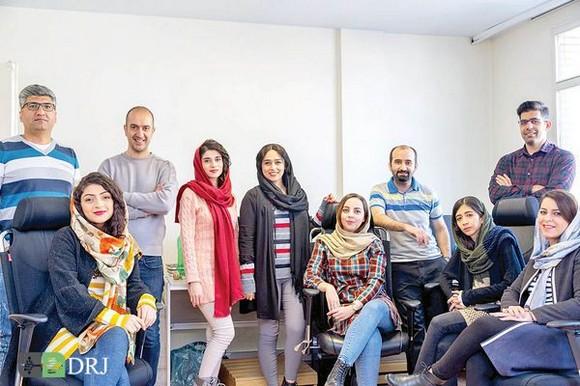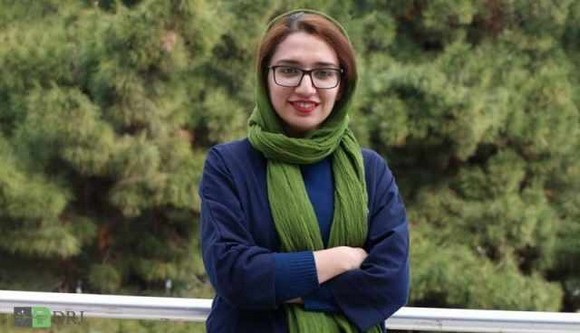Syed Muhammad Naquib bin Ali bin Abdullah bin Muhsin al-Attas
Syed Muhammad Naquib bin Ali bin Abdullah bin Muhsin al-Attas
Syed Muhammad Naquib al-Attas , born September 5 , 1931 in Bogor , Java , is a prominent contemporary Muslim thinker . He is one of the few contemporary scholars who is thoroughly rooted in the traditional Islamic sciences and who is equally competent in theology , philosophy , metaphysics , history , and literature . His thought is integrated , multifaceted and creative . Al-Attas’ philosophy and methodology of education have one goal: Islamization of the mind , body and soul and its effects on the personal and collective life on Muslims as well as others , including the spiritual and physical non-human environment . He is the author of twenty-seven authoritative works on various aspects of Islamic thought and civilization , particularly on Sufism , cosmology , metaphysics , philosophy and Malay language and literature .
Al-Attas was born into a family with a history of illustrious ancestors , saints , and scholars . He received a thorough education in Islamic sciences , Malay language , literature and culture . His formal primary education began at age 5 in Johor , Malaysia , but during the Japanese occupation of Malaysia , he went to school in Java , in Madrasah Al-`Urwatu’l-wuthqa , studying in Arabic . After World War II in 1946 he returned to Johor to complete his secondary education . He was exposed to Malay literature , history , religion , and western classics in English , and in a cultured social atmosphere developed a keen aesthetic sensitivity . This nurtured in al-Attas an exquisite style and precise vocabulary that were unique to his Malay writings and language . After al-Attas finished secondary school in 1951 , he entered the Malay Regiment as cadet officer no . 6675 . There he was selected to study at Eton Hall , Chester , Wales and later at the Royal Military Academy , Sandhurst , England ( 952 -55 ) . This gave him insight into the spirit and style of British society . During this time he was drawn to the metaphysics of the Sufis , especially works of Jami , which he found in the library of the Academy . He traveled widely , drawn especially to Spain and North Africa where Islamic heritage had a profound influence on him . Al-Attas felt the need to study , and voluntarily resigned from the King’s Commission to serve in the Royal Malay Regiment , in order to pursue studies at the University of Malaya in Singapore 1957-59 . While undergraduate at University of Malay , he wrote Rangkaian Ruba`iyat , a literary work , and Some Aspects of Sufism as Understood and Practised among the Malays . He was awarded the Canada Council Fellowship for three years of study at the Institute of Islamic Studies at McGill University in Montreal . He received the M . A . degree with distinction in Islamic philosophy in 1962 , with his thesis “Raniri and the Wujudiyyah of 17th Century Acheh” . Al-Attas went on to the School of Oriental and African Studies , University of London where he worked with Professor A . J . Arberry of Cambridge and Dr . Martin Lings . His doctoral thesis ( 1962 ) was a two-volume work on the mysticism of Hamzah Fansuri .
In 1965 , Dr . al-Attas returned to Malaysia and became Head of the Division of Literature in the Department of Malay Studies at the University of Malay , Kuala Lumpur . He was Dean of the Faculty of Arts from 1968-70 . Thereafter he moved to the new National University of Malaysia , as Head of the Department of Malay Language and Literature and then Dean of the Faculty of Arts . He strongly advocated the use of Malay as the language of instruction at the university level and proposed an integrated method of studying Malay language , literature and culture so that the role and influence of Islam and its relationship with other languages and cultures would be studied with clarity . He founded and directed the Institute of Malay Language , Literature , and Culture ( IBKKM ) at the National University of Malaysia in 1973 to carry out his vision .
In 1987 , with al-Attas as founder and director , the International Institute of Islamic Thought and Civilization ( ISTAC ) was established in Kuala-Lumpur . This institution strives to bring an integrated Islamization into the consciousness of its students and faculty . Al-Attas envisioned the plan and design of every aspect of ISTAC , and has incorporated Islamic artistic and architectural principles throughout the campus and grounds .
Al-Attas maintains that modern science sees things as mere things , and that it has reduced the study of the phenomenal world to an end in itself . Certainly this has brought material benefits , however it is accompanied by an uncontrollable and insatiable propensity to destroy nature itself . Al-Attas maintains a firm critique that to study and use nature without a higher spiritual end has brought mankind to the state of thinking that men are gods or His co-partners . “Devoid of real purpose , the pursuit of knowledge becomes a deviation from the truth , which necessarily puts into question the validity of such knowledge . [Islam and Secularism , p . 36]
Al-Attas views Western civilization as constantly changing and ‘becoming’ without ever achieving ‘being’ . He analyzes that many institutions and nations are influenced by this spirit of the West and they continually revise and change their basic developmental goals and educational objectives to follow the trends from the West . He points to Islamic metaphysics which shows that Reality is composed of both permanence and change; the underlying permanent aspects of the external world are perpetually undergoing change [Islam and Secularism , p . 82]
For al-Attas , Islamic metaphysics is a unified system that discloses the ultimate nature of Reality in positive terms , integrating reason and experience with other higher orders in the suprarational and transempirical levels of human consciousness . He sees this from the perspective of philosophical Sufism . “No formulation of a philosophy of education and a philosophy of science along Islamic lines can be developed by ignoring the great contributions of the Sufi masters on the ultimate nature of reality . ” [in the conclusion of his Commentary on Hujjat al-Siddiq] . Al-Attas says that the Essentialist and the Existentialists schools of the Islamic tradition address the nature of reality . The first is represented by philosophers and theologians , and the latter by Sufis . The Essentialists cling to the principle of mahiyyah ( quiddity ) , whereas the Existentialists are rooted in wujud ( the fundamental reality of existence ) which is direct intuitive experience , not merely based on rational analysis or discursive reasoning . This has undoubtedly led philosophical and scientific speculations to be preoccupied with things and their essences at the expense of existence itself , thereby making the study of nature an end in itself . Al-Attas maintains that in the extra-mental reality , it is wujud ( Existence ) that is the real ‘essences’ of things and that what is conceptually posited as mahiyyah ( ‘essences’ or ‘quiddities’ ) are in reality accidents of existence . This is al-Haqq , the Truth , a wajh ( aspect ) of God . [Intuition of Existence , p . 6 , 7]
The process of creation or bringing into existence and annihilation or returning to non-existence , and recreation of similars is a dynamic existential movement . There is a principle of unity and a principle of diversity in creation . “The multiplicity of existents that results is not in the one reality of existence , but in the manifold aspects of the recipients of existence in the various degrees , each according to its strength or weakness , perfection or imperfection , and priority or posteriority . Thus the multiplicity of existents does not impair the unity of existence , for each existent is a mode of existence and does not have a separate ontological status” [On Quiddity and Essence , p . 33] . He clarifies that the Essence of God is absolutely transcendent and is unknown and unknowable , except to Himself , whereas the essence or reality of a thing consists of a mode of existence providing the permanent aspect of the thing , and its quiddity , endowing it with its changing qualities .
Al-Attas makes no attempts to accommodate modern Western scientific spirit through a reinterpretation of Islam , or to naively import Western technological skills and products while simultaneously keeping intact the traditional understanding of religion . Problems in the world , he says , are not because of illiteracy or ignorance of modern knowledge; the reasons are epistemological and metaphysical . Modern sciences must be acquired , but their philosophical foundations must be recast into the Islamic metaphysical framework . “We do affirm that religion is in harmony with science . But this does not mean that religion is in harmony with modern scientific methodology and philosophy of science . Since there is no science that is free of value , we must intelligently investigate and study the values and judgments that are inherent in , or aligned to , the presuppositions and interpretations of modern science . We must not indifferently and uncritically accept each new scientific or philosophical theory without first understanding its implication and testing the validity of values that go along with the theory . Islam possesses within itself the source of its claim to truth , and does not need scientific or philosophical theories to justify such a claim . Moreover , it is not the concern of Islam to fear scientific discoveries that could contradict the validity of its truth . ” [Prolegomena , p . 38]
Islamic science must interpret the facts of existence in correspondence with the Qur’anic system of conceptual interrelations and its methods of interpretation , not the other way around , by interpreting the system in correspondence with the facts .
Since the role of science is to be descriptive of facts , and facts undergo continual change by virtue of their underlying reality which is process , modern philosophy and science , in a secular way , consider change to be the ultimate nature of reality . Al-Attas maintains that reality is at once both permanence and change , not in the sense that change is permanent , but in the sense that there is something permanent whereby change occurs . Change does not occur at the level of phenomenal things , for they are ever-perishing , but at the level of their realities which contain within themselves all their future states .
Al-Attas advocates that the categories of knowledge which were fundamental to the Islamic tradition are fundamental to any real modern education . In the traditional Islamic worldview , knowledge was of two kinds , the open-ended fard kifayah knowledge , which includes the natural , physical and applied sciences , and the fard `ayn , the absolute nature of the knowledge pertaining to God and the spiritual realities and moral truths . Fard `ayn knowledge is not static , but dynamic , and it increases according to the spiritual and intellectual abilities as well as social and professional responsibilities of a person . Contemporary modern knowledge needs to be delivered from its interpretations based on secular ideology . This requires “a critical examination of the methods of modern science; its concepts , presuppositions , and symbols; its empirical and rational aspects , and those impinging upon values and ethics; its interpretations of origins; its theory of knowledge; its presuppositions on the existence of an external world , of the uniformity of nature and of the rationality of natural processes; its theory of the universe; its classification of the sciences; its limitations and inter-relations with one another of the sciences , and its social relations” [Prolegomena , p . 114] .
Science , according to Al-Attas , is a kind of ta’wil or allegorical interpretation of the empirical things that constitute the world of nature [Islam and the Philosophy of Science , p . 116] . The natural world is a book with knowledge; but that knowledge is not evident merely from the physical phenomena; they are nothing but signs , the meaning of which can be understood by those who are equipped with proper knowledge , wisdom and spiritual discernment . Some natural phenomena are obvious as to their meaning , while other natural things are ambiguous; similarly there are clear verses ( muhkamat ) of the Qur’an , while other verses are ambiguous ( mutashabihat ) . The scientifically relevant verses in the Qur’an necessarily open themselves for further interpretation , based on the cumulative knowledge of future generations . He says that the fact that the early Muslims were not cognizant of the many scientific truths embedded in the Qur’an proves that the discoveries of these truths will not contradict its universal spiritual and religious-moral teachings .
The signs of the external world must be understood via the same method as the valid interpretation and understanding of the written words of the Qur’an , namely through tafsir ( direct interpretation ) and ta’wil , a deeper and allegorical interpretation based on the clear and direct words . Similarly , religion is constituted by established ( i . e . Shari`ah ) and ambiguous ( Haqiqah ) , aspects of the same reality and truth , and the reality of the latter is based upon the established truth of the former . [Commentary on Hujjat al-Siddi , p . 183]
Al-Attas says that the constituent parts of the fundamental bases of Islamic metaphysics are: the primacy of the reality of existence; the dynamic nature of this reality that is continually unfolding itself in systematic gradation from the degrees of absoluteness to those of manifestation; determination , and individuation; the perpetual process of the new creation; the absence of a necessary relation between cause and effect and its explanation in the Divine causality; the third metaphysical category between existence and non-existence ( the realm of the permanent entities ); and the metaphysics of change and permanence pertaining to the realities . It is within the framework of this metaphysics that the philosophy of science must be formulated . [Islam and the Philosophy of Science , p . 35 , 36]
For more information , please see:
http://61 . 6 . 32 . 133/istac/Founder/founderpage . htm
Works by Syed Muhammad Naquib Al-Attas ,
published by the International Institute of Islamic Thought and Civilization ( ISTAC )
( 1970 , reprinted in 1984 ) , The Correct Date of the Terengganu Inscription , Kuala Lumpur Museum Department .
( 1975 ) , Comments on the Re-Examination of Al-Raniri’s Hujjat au’l Siddiq: A Refutation , Kuala Lumpur Museum Department .
( 1978 , reprinted in 1993 ) , Islam and Secularism .
( 1980 ) , The Concept of Education in Islam .
( 1988 ) , The Oldest Known malay Manuscript: A 16th Century Malay Translation of the `Aqa’id of al-Nasafi .
( 1989 ) , Islam and the Philosophy of Science .
( 1990 ) , The Nature of Man and the Psychology of the Human Soul .
( 1990 ) , On Quiddity and Essence .
( 1990 ) , The Intuition of Existence .
( 1992 ) , The Concept of Religion and the Foundation of Ethics and Morality .
( 1993 ) , The Meaning and Experience of Happiness in Islam .
( 1994 ) , The Degrees of Existence .
( 1995 ) , Prolegomena to the Metaphysics of Islam: An Exposition of the Fundamental Elements of the Worldview of Islam .
Also , see: Wan Mohd Nor Wan Daud ( 1998 ) , The Educational Philosophy and Practice of Syed Muhammad Naquib Al-Attas: An Exposition of the Original Concept of Islamization , ISTAC , Kuala Lumpur .
Elma Ruth Harder
May 18 , 2002













































